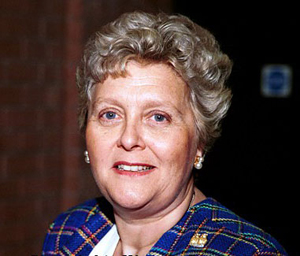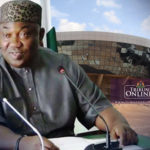She stated this on Wednesday in Lagos while delivering a lecture on “Africa in a competitive World: Development and business” organised by the Lagos State University, LASU, Ojo. The programme, which has the Lagos State governor’s rep, Mr Kehinde Bamgbetan and the former executive secretary, National Universities Commission, Prof Peter Okebukola, in attendance, was tagged: “An afternoon with Baroness Lynda Chalker.”
According to Chalker, Nigeria, just like every other African country, must have to meet certain conditions to meaningfully grow her economy and these include structural reforms that would not only improve people’s livelihoods, whether in health, education, technology and business, but would also create jobs and boost productivity.
Another salient thing for Nigeria to drive prosperity, she noted, is to key into the labour-intensive industries just like India to bring employment opportunities to the rising young population, aggressively drive public-private partnerships, create enabling and sustainable business environment and investment climate, as well as improve public institutions and delivery of public services.
ALSO READ: Mother of 5 slumps, dies after s*x romp with lover in Ogun
She said the central key to achieving all these is right policies and plans that would enable people to develop self-support rather than economically dependent.
Mrs Chalker, who is a former UK parliamentarian and now Chairman, African Matters Limited, said the type of prosperity she meant for Nigeria is where access to affordable and decent housing, safe water, better transportation, quality healthcare and education to the citizenry would be the order of the day.
She, however, said it was disheartening that apart from having the largest out-of-school children globally, with the majority as girls, Nigeria is not among Africa’s top destinations for foreign direct investment inflows as at 2017.
She said, while the provision of quality and quantitative education for children is key to national development, the reduction of non-tariff barriers would also significantly drive foreign investment into the country.
“So, Nigeria does not need strong people, but strong institutions, wise and creative leaders to achieve all these,” she argued.
In her remarks, the chairman on the occasion and Senior Special Assistant to the President on Foreign Affairs and Diaspora, Mrs Abike Dabiri-Erewa, said truly Nigeria had lots of challenges stalling her progress, major ones are the lost of value system, gross indisciplined and corruption.
She, however, said since the government could not all meet people’s desires including the building of strong human capital, the private sector should join hands to move the country to greater heights.
Earlier, the Vice-Chancellor of LASU, Prof Olarenwaju Fagbohun, in his address of welcome, said the ongoing rebranding drive of LASU would greatly help the institution to effectively carry out her tripartite mandates of teaching, research and community services.
He said LASU would remain focus in the production of graduates that industries require and build a knowledge-driven economy for Nigeria and the world at large.






